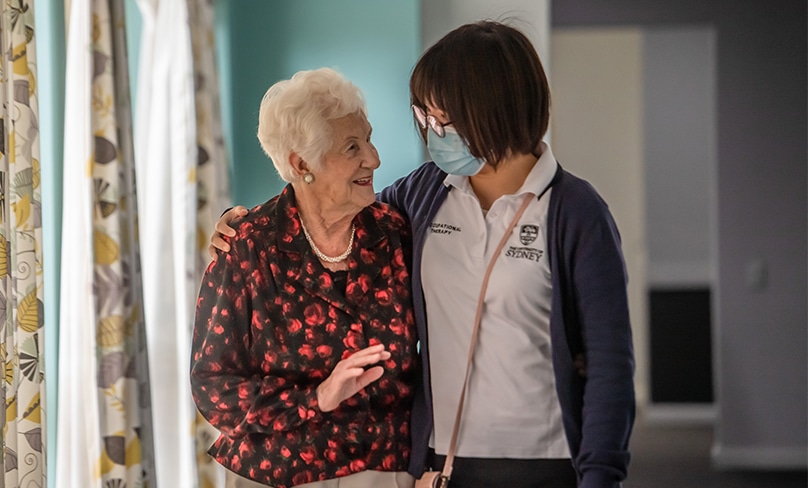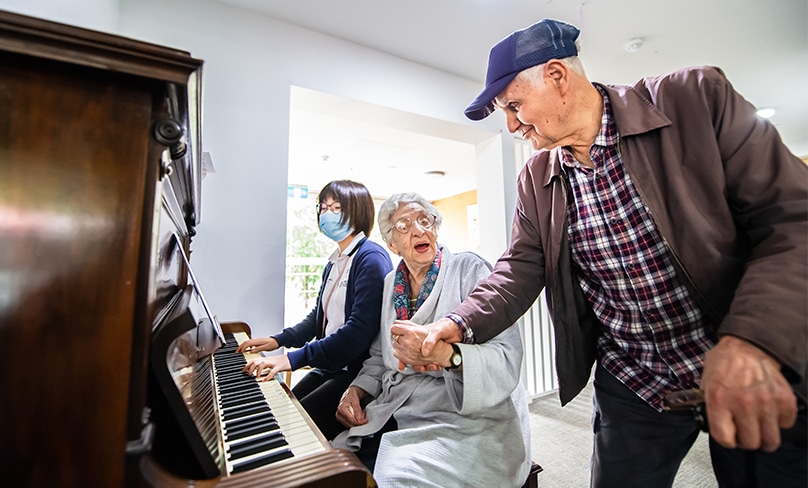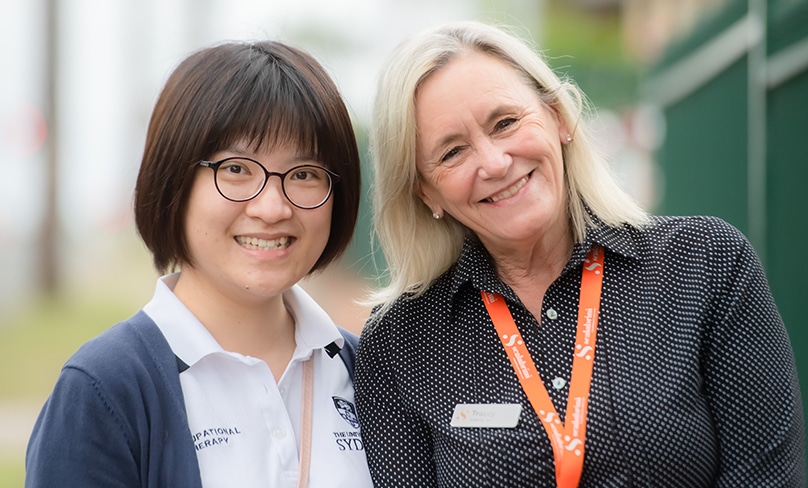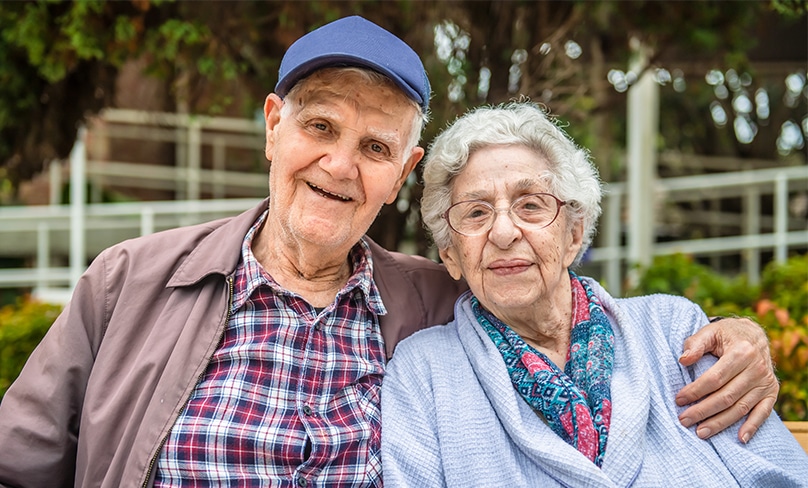
Twenty-three-year-old Katie Yung is a “resident” in a nursing home and living every uni student’s dream.
She has more than 100 grandparents to spoil her, pays no rent, never has to worry about noisy flatmates or waking up to somebody having used all the milk.
But on the downside she never knows if her ‘neighbours’ will remember her from one day to the next, and death is an all too familiar occurrence.
The occupational therapy student is taking part in an Australian-first program offering free accommodation to students in return for them volunteering with residents of Bexley’s Scalabrini Village Nursing Home.
Designed to build relationships between Allied Health graduates from Sydney University in their 20s and residents in their 80s and 90s, the intergenerational program is delivering benefits way beyond expectations.
Latest research has shown that loneliness has a very real effect on physical and mental wellbeing.
“To date, a dozen students have taken part in the innovative program, with residents singing its praises and staff seeing a new sense of vitality and variety to village life.”
It can have similar health impacts to obesity, alcoholism, and smoking. And it’s not just those living alone who feel isolated. Seniors who live in residential care often report feeling lonelier than those in the community.
To date, a dozen students have taken part in the innovative program, with residents singing its praises and staff seeing a new sense of vitality and variety to village life.
Four of the 12 are currently resident in the home.
And it’s not just the residents who are reporting the benefits of the Gold Soul Companionship program … the students have described it as “life changing”.
For just 30 hours each month, Katie listens to music with the residents, does gentle exercise, goes on bus trips, sits with them at Mass, plays cards, or just holds their hands and listens.

Like many of the residents, the Hong Kong-born international student said she can feel very alone as her family and friends are so far away, so she can also relate to how many of the residents feel.
“Living here is like having a hundred grandparents, it really is like a dream,” she beamed.
“No matter what age you are, being away from family can get lonely and I see that every day. Some of the residents don’t get any visitors, which is quite heartbreaking.
“When I first moved in, I thought 30 hours a month would be tough but it’s really not about trying to reach a number each month, it’s so much more than that.
“I have been given the opportunity to see a side of life I’ve never seen before which has been life changing.
“I have developed such strong bonds with lots of the residents and it will be quite painful to leave once I have finished my three-year placement.”
“There are so many stereotypes about older people but now that I have gotten to know them, I have completely changed my opinion.”
Arriving in Australia a year ago, Katie initially wanted to improve both her work and communications skills, but once she moved in, she discovered it offered so much more than somewhere to live.
“Apart from my grandma back in Hong Kong, I have had no experience dealing with older people so I was very anxious when I was accepted into the program,” she said.
“There are so many stereotypes about older people but now that I have gotten to know them, I have completely changed my opinion.
“They are lovely, gentle and very kind and they all have such interesting life stories.
“I feel so blessed to be able to share their life with them, and I feel I am the one benefiting from the program.

“They can also be quite pretty, in Chinese culture many older people say they are too old to worry about their appearance, but many here dress very elegantly and look very smart.”
One surprising discovery Katie has made is the importance of music.
A classically trained pianist, she said even those she can’t communicate with through words come to life when she starts playing.
“I learnt the piano when I was very young because my parents made me. It wasn’t something I ever enjoyed,” she said.
“But when I moved into the nursing home, I thought it might be a way for me to communicate with the residents and they just love it.
“Until now I never found any meaning in playing the piano, but now it’s the opposite, when I play it brings so much happiness.
“Living here has shown me that while death is a natural thing, we should make the time to spend with our loved ones while they are here with us.”
“Some of the residents who have dementia can’t even remember their own names, but once I start playing, they automatically start singing the words to the songs.
“Music is such an important therapy for them, it’s incredible.” For Katie the only downside to living in the home is having to come to terms with mortality.
“Living here has shown me that while death is a natural thing, we should make the time to spend with our loved ones while they are here with us,” she said.
“If you have had a full and happy life it doesn’t have to be sad.
“Already I have so many happy memories and will always recall the quality time that we had together once I leave.

“Originally my friends were very surprised when I told them I was moving into a nursing home, but I think they are a little jealous now and would like to do it themselves.
“This has become my home, I live here seven days a week and the residents have become my family.
“It has been a truly unforgettable experience and one that I am so lucky to experience.”
Scalabrini Bexley’s Wellbeing Coordinator Tracey Gill said the program has been an outstanding success and she had received calls from nursing homes around the country interested in introducing it.
She said its value is limitless, with residents getting so much companionship, friendship, and a sense of “grandchildren and family”.
“The students get free accommodation and meals but what we get in return really is priceless,” she said.
“Consistency is very important for the residents, I know the elderly have volunteers visit short term and really miss them and cry once they leave.
“They understand the Scalabrini way of doing things, and they get to know the families, get to know the residents and give them meaningful engagement and enjoyment.”
“Having the students live here gives them a real feeling of family.
“At the same time, the students gain an insight into residential aged care and the lived experience of the elderly – a generation they hope to later treat as qualified occupational therapists, physiotherapists and radiographers.
“I get so many comments about what an amazing bunch of young adults they are.
“They understand the Scalabrini way of doing things, and they get to know the families, get to know the residents and give them meaningful engagement and enjoyment.
“They really are a Godsend, we are so very fortunate to have them here.”
